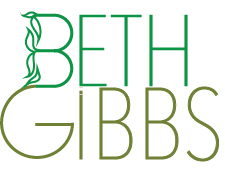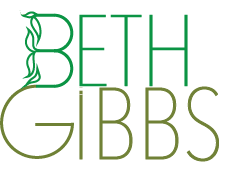ENLIGHTEN UP! a blogSelf-awareness stories: lighting our way to clarity, contentment and resilience in a complicated world.
|
 “It’s not the load that breaks you down, it’s the way you carry it.” — Lena Horne Feeling COVerwhelmed? Suffering from CORONAphobia? If so, you have lots of company. Elana Amsterdam, cookbook author and lifestyle blogger, coined these helpful words to describe what many of us are feeling right now. It is disheartening to hear about the growing number of Covid 19 cases and deaths. It is scary and stressful to think about what might happen to our loved ones and to us. How to cope? Building resilience will help us carry this load. Embodying resilience is one way to manage anxiety, reduce stress, and get clear about what we can do to get through this global pandemic. Resilience is the ability to rebound quickly from a crisis, tragedy, trauma or a serious case of ‘stress mess.’ In this current crisis, highly resilient people won’t fall apart easily, and when we do (cause’ we will!), it won’t be for long. Why? Resilient folk call on their inner resources and ask for outside help when it’s needed. They ‘tweak’ their expectations to fit the new reality of physical distancing, over the top personal hygiene and wearing face coverings or masks (if we can find them!). A major obstacle to being resilient at this time, is fear. Fear is generally defined as an uncomfortable feeling resulting from something we recognize, or perceive as an immediate danger or threat. Fear shows up in many forms: anxiety, alarm, panic, insecurity, uncertainty etc. In terms of the fight/flight response to stress, fear is the flight response – pushing us to get physically or emotionally as far away from the situation as possible. In this global crisis, the only place we can flee to is home. There we stay and do our part to flatten the curve of the pandemic, avoid infecting others, and lessen the pressure on our local hospitals and health care systems. We count on our healthy lifestyle practices like exercise, yoga, and healthy eating to support us as we ride out the storm, find ways to manage our new normal and still connect to friends and family through email (yes, some of us still use email!), face time, and Zoom. Not surprisingly, research has found that resiliency varies from person to person due to a variety of factors, including genetics, but like any skill, resiliency can be learned. Resilient people tend to share several common characteristics. I reviewed lists from two sources {1} {2} and selected six characteristics that relate closely to the goals of self-awareness.
The difference between those who are more resilient and those who are less, may be in how self-aware the person is and how they put resilience into action. It’s recommended that we build our capacity for resilience before we face difficulty. If we are working on living healthier in body, mind and spirit, we’ve been building resilience right along with self-awareness and peace of mind. However, it’s important to know that even if you are highly resilient, you can still have moments of falling apart. That’s when your will power plummets, your body slumps, and your mind moves from optimism to mucking around in your personal well of despair. If you are resilient, you will recognize this, call on your Witness, figure out the what and the why and take skillful action. Remember, when resilient people fall apart, it won’t be for long and practicing self-awareness can help us put ourselves back together. I fell apart around week three of being home with everything cancelled and the number of Covid 19 cases and deaths in my state growing daily. I was aware of the what, and the why, knew I needed a huge dose of right action, but felt stuck. My Witness was watching and shaking its head at my reluctance to follow its lead. Sometimes, the nudge we need comes from an external source. The next morning, when I dragged myself from bed and opened my email, I saw a message from the owner of the yoga studio where I teach (or taught until it closed for the lockdown). It contained this advice:
That was the nudge I needed and it was right on time! I picked three items from the list, routine, movement, and breath and got to work. An hour later, my mood shifted and my resiliency re-surfaced. Here is a helpful practice for routine, movement, and breath. The Half Sun Salutation I like this sequence because it can be done standing or seated. As a yoga routine, it stretches the whole body and involves awareness of both breath and movement. Mountain Pose: Stand or sit with your feet hips width apart and your spine comfortably straight. Relax your arms by your sides. Upward Salute: Inhale and raise both arms overhead. Half Moon: Exhale and bend to the right. Inhale to center and repeat on the left side. Inhale to center. Standing/Seated Back Arch: Place your hands on your lower back, fingers pointing down. Inhale, lift your chest, soften your shoulders and arch your back. Keep the head up or drop it back as long as your neck is comfortable. If standing bend your knees a little. Hold for a few breaths. Come up on an inhalation. Forward Fold: Inhale. Raise both arms overhead. exhale and come into your Forward Fold. If seated step your feet wide and fold forward as far as you can. Place your elbows on your knees or relax forward and place your hands on the floor. If standing, soften your knees, fold forward and place your hands on thighs, knees, lower legs, ankles or the floor. Twists Hold your Forward Fold and breathe slowly. With your left hand on your left foot, knee or thigh. Inhale and lift your right arm out to the side and overhead as you twist your upper body to the right. Exhale and lower your right arm. Repeat on the left side. Upward Salute: Inhale and raise both arms overhead. Mountain Pose: Exhale, lower your arms to your sides. Rest for a few breaths. Note this quote. “Resilience is very different than being numb. Resilience means you experience, you feel, you fail, you hurt. You fall. But, you keep going.” ― Yasmin Mogahed References 1. https://exploringyourmind.com/8-characteristics-resilient-people/ 2. https://www.psychologytoday.com/us/blog/design-your-path/201305/10-traits-emotionally-resilient-people)
3 Comments
|
Archives
July 2024
AuthorBETH GIBBS started her yoga practice in 1968, four months after her son was born and she’s been practicing ever since. She currently teaches all levels therapeutic yoga classes for adults, and specialty classes for seniors in the Hartford, Connecticut area. Beth is a certified yoga therapist through the International Association of Yoga Therapists and is guest faculty at the Kripalu School of Integrative Yoga Therapy. She writes for the blogs, Yoga for Healthy Aging, and Accessible Yoga. Her master’s degree from Lesley University in Cambridge, MA is in Yoga Therapy and Mind/Body Health. Categories |
|
|
Enlighten Up! a Blog
|
Copyright © 2023 Beth Gibbs

 RSS Feed
RSS Feed
